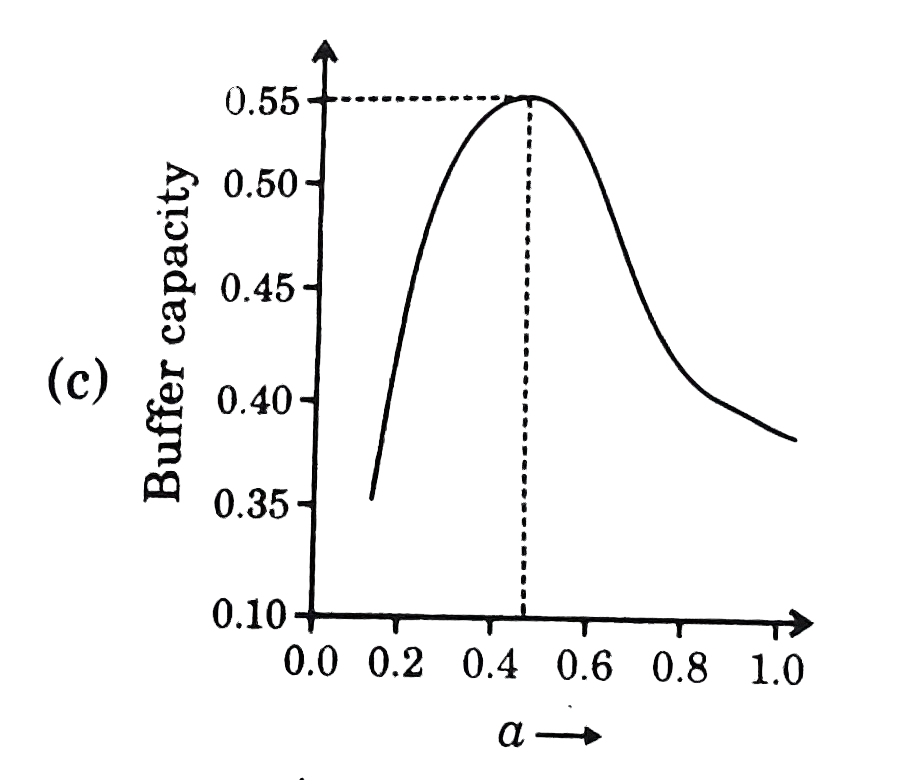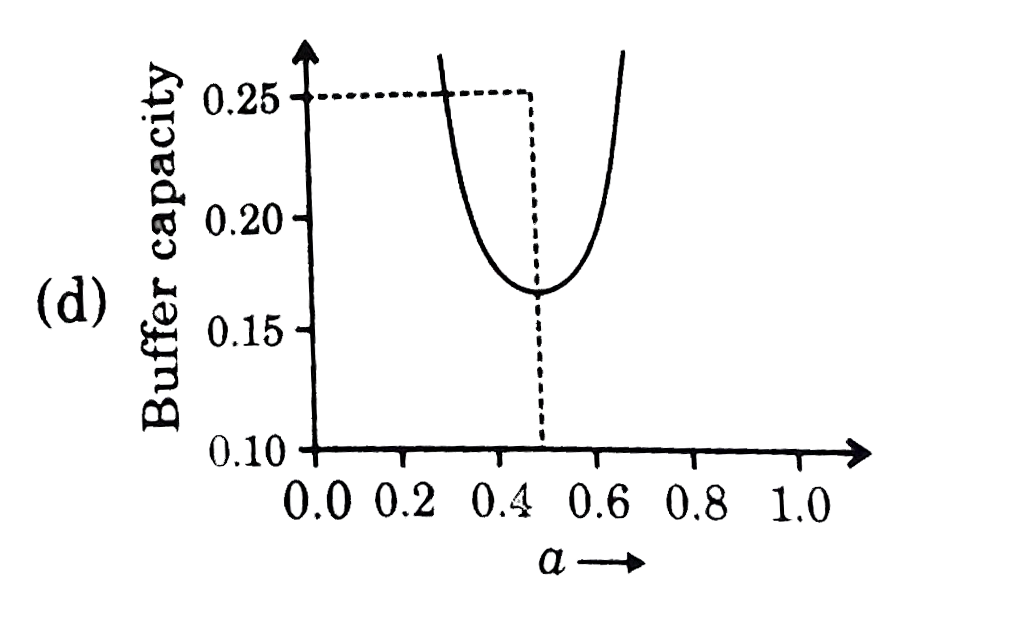Explain the terms 'buffer capacity" and 'buffer index".
The buffer capacity is the ability of the buffer to resist changes in pH by the addition of small quantities of acid or base. It is measured in terms of buffer capacity. The quantitative measure of buffer capacity is buffer index. It is defined as the number of equivalents of acid or base to one litre of the buffer solution to change its pH by unity.
β=dBd(pH)
where β= buffer index, dB= number of gram equivalent of acid/base added to one litre of buffer solution, d(pH)= The change in pH after the addition of an acid or base.
Topper's Solved these Questions
- IONIC EQUILIBRIUMBOOK - PREMIERS PUBLISHERSCHAPTER - IONIC EQUILIBRIUMEXERCISE - OTHER IMPORTANT QUESTION & ANSWER (choose the correct answer)
28 Videos
- HYDROXY COMPOUNDS AND ETHERSBOOK - PREMIERS PUBLISHERSCHAPTER - HYDROXY COMPOUNDS AND ETHERSEXERCISE - OTHER IMPORTANT QUESTIONS & ANSWERS (Answer the following questions )
57 Videos
- ORGANIC NITROGEN COMPOUNDS BOOK - PREMIERS PUBLISHERSCHAPTER - ORGANIC NITROGEN COMPOUNDS EXERCISE - OTHER IMPORTANT QUESTIONS & ANSWERS (ANSWER THE FOLLOWING QUESTIONS)
140 Videos
Similar Questions
Knowledge Check
Buffer capacity of acid buffer solution is more when
APKa=PHB[Salt]=[Acid]CPKa=7D[H+]=PKaA buffer solution is prepared by mixing 'a' moles of CH3COONa and 'b' moles of CH3COOH such that (a+b)=1, into water to male 1L buffer solution. If the buffer capacity of this buffer solution is plotted against moles of salt CH3COONa 'a' then the plot obtained will be (to the scale) approximately. (As shown in fig. in options)
A B
B C
C D
D
When 2mol of HCI is added to 1L of an acidic buffer, its pH changes from 3.4 to 2.9. The buffer capacity of the buffer solution is
A2B0C4D8
Buffer Action Of Basic Buffer
View SolutionWhen 2mol of HCI is added to 1L of an acidic buffer, its pH changes from 3.4 to 2.9. The buffer capacity of the buffer solution is
View SolutionUnder what condition buffer with highest buffer capacity is obtained ?
View SolutionHigher the amount of acid or base used to produce a definite change of pH in a buffer solution,higher will be its buffer capacity. Buffer capacity of solution is maximum under the following conditions:
[Salt]= [Acid] (in acid buffer), [Salt] = [Base] (in base buffer) pH of a buffer solution lies in the range given below: pH = pKa±1,
In other words, any buffer solution can be used as buffer up to two pH units only, depending upon the value of pKa, or pKb,. A buffer is said to be efficient when pH=pKa, or pOH= pKb
The bulfer capacity is equal to :
View SolutionHigher the amount of acid or base used to produce a definite change of pH in a buffer solution,higher will be its buffer capacity. Buffer capacity of solution is maximum under the following conditions:
[Salt= [Acid] (in acid buffer), [Salt] = [Base] (in base buffer) pH of a buffer solution lies in the range given below: pH = pka±1,
In other words, any buffer solution can be used as buffer up to two pH units only, depending upon the value of pKa, or pKb,. A buffer is said to be efficient when pHa=pKa, or pOH= pkb
Which among the following solution will be the most efficient buffer?
View Solution
